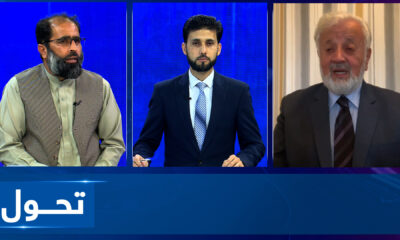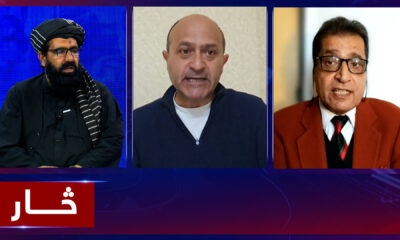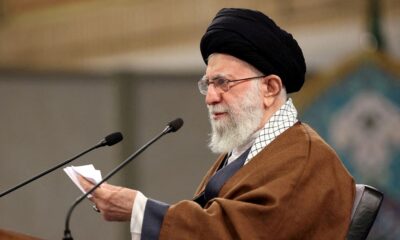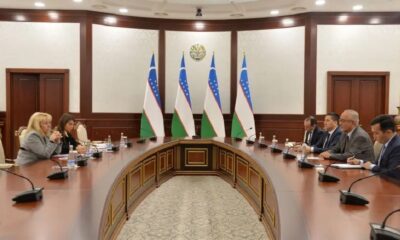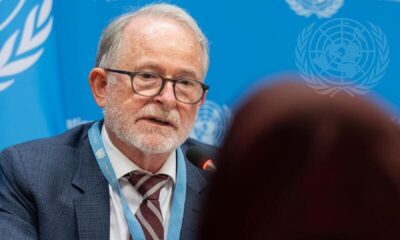World
Russian losses evident in key liberated Ukrainian city

The bodies of Russian soldiers were lying in the streets of a key eastern Ukrainian city on Tuesday following their comrades’ retreat that marked the latest defeat for Moscow even as Russia’s upper house of parliament rubber-stamped the annexation of Ukrainian regions on Tuesday, AP reported.
Russian troops pulled back from Lyman over the weekend to avoid being encircled by Ukrainian forces. The city’s liberation gave Ukraine a key vantage point for pressing its offensive deeper into Russian-held territories.
The Ukrainian military collected the bodies of their comrades after fierce battles for control of Lyman, a key logistics and transport hub, but did not immediately remove those of the Russians.
“We fight for our land, for our children, so that our people can live better, but all this comes at a very high price,” said a Ukrainian soldier who goes by the nom de guerre Rud.
Lyman residents emerged from basements where they had hidden during the battle for control of the city and built bonfires for cooking. The city has had no water, electricity or gas since May.
A 85-year-old, who identified herself by her name and patronymic, Valentyna Kuzmichna, recalled a recent explosion nearby.
“I was standing in the hall, about 5 meters away, when it boomed,” she said. “God forbid, now I can’t hear well.”
The Russian forces launched more missile strikes at Ukrainian cities on Tuesday as Ukrainian forces pressed their counteroffensives in the east and the south.
Several missiles hit Ukraine’s second-largest city of Kharkiv, damaging its infrastructure and causing power cuts. Kharkiv Gov. Oleh Syniehubov said one person was killed and at least two others, including a 9-year-old girl, were wounded.
In the south, four civilians were injured when Russian missiles struck the city of Nikopol.
After reclaiming control of Lyman in the Donetsk region, the Ukrainian forces pushed further east and may have gone as far as the border of the neighboring Luhansk region as they advance toward Kreminna, the Washington-based Institute for the Study of War said in its latest analysis of the combat situation.
On Monday, Ukrainian forces also scored significant gains in the south, raising flags over the villages of Arkhanhelske, Myroliubivka, Khreshchenivka, Mykhalivka and Novovorontsovka.
World
Nineteen reported injured in central Israel after projectile launch

Nineteen people in central Israel's Sharon region were injured, the Israeli police said, after the military reported the launch of three projectiles from Lebanon into Israeli territory early on Saturday.
The national ambulance service previously reported that seven people in the central Israeli town of Tira were injured, Reuters reported.
The Israeli military said that sirens sounded in several areas of central Israel after the projectile launch. Some projectiles had been intercepted, it said.
"A fallen projectile was most likely identified in the area," the army added, noting that details were under investigation.
The national ambulance service and local media said the injuries in Tira ranged from mild to moderate, while two other people suffered stress symptoms.
The Islamic Resistance in Iraq said later in a statement it had launched drones at a "vital target" in northern Israel. It was not immediately clear if the group's action was related to the injuries.
Fighting in Lebanon has escalated dramatically in recent weeks between Israeli forces and the Lebanese Hezbollah group.
World
Russia fires missiles to simulate ‘massive’ response to a nuclear attack
Defence Minister Andrei Belousov told Putin that the purpose of the drill was to practice delivering “a massive nuclear strike by strategic offensive forces in response to a nuclear strike by the enemy”
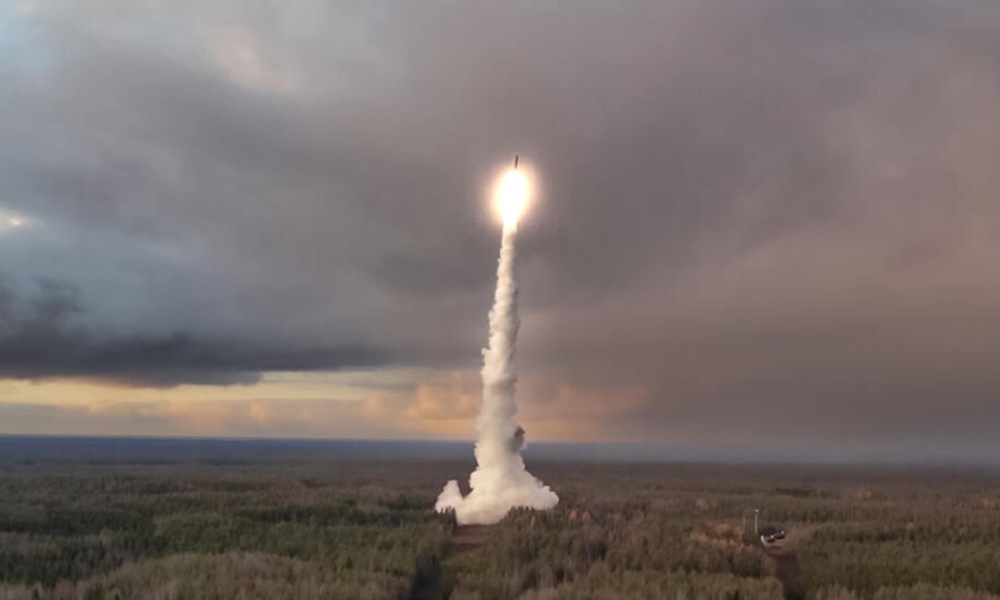
Russia test-fired missiles over distances of thousands of miles on Tuesday to simulate a "massive" nuclear response to an enemy first strike, Reuters reported.
"Given the growing geopolitical tensions and the emergence of new external threats and risks, it is important to have modern and constantly ready-to-use strategic forces," President Vladimir Putin said as he announced the exercise.
It took place at a critical moment in the Russia-Ukraine war, after weeks of Russian signals to the West that Moscow will respond if the United States and its allies allow Kyiv to fire longer-range missiles deep into Russia.
On Monday NATO said that North Korea has sent troops to western Russia, something Moscow has not denied.
In televised comments, Defence Minister Andrei Belousov told Putin that the purpose of the drill was to practice delivering "a massive nuclear strike by strategic offensive forces in response to a nuclear strike by the enemy".
The exercise involved Russia's full nuclear "triad" of ground-, sea- and air-launched missiles.
A Yars intercontinental ballistic missile was launched from Plesetsk cosmodrome in northwest Russia to Kamchatka, a peninsula in the far east.
Sineva and Bulava ballistic missiles were fired from submarines, and cruise missiles were launched from strategic bomber planes, the defence ministry said.
The 2-1/2-year-old war is entering what Russian officials say is its most dangerous phase as the West considers how to shore up Ukraine while Russian forces advance in the east of the country.
Putin said using nuclear weapons would be an "extremely exceptional measure".
"I stress that we are not going to get involved in a new arms race, but we will maintain nuclear forces at the level of necessary sufficiency," he said.
He added that Russia was moving to new "stationary and mobile-based missile systems" which have a reduced launch preparation time and could overcome missile defence systems.
The drill follows an Oct. 18 exercise in the Tver region, northwest of Moscow, involving field movements by a unit equipped with Yars intercontinental ballistic missiles, capable of striking U.S. cities, Reuters reported.
Nuclear Signals
Since the start of the war, Putin has sent a series of pointed signals to the West, including by changing Russia's position on major nuclear treaties and announcing the deployment of tactical nuclear missiles to neighbouring Belarus.
Ukraine has accused him of nuclear blackmail. NATO says it will not be intimidated by Russian threats.
Last month the Kremlin leader approved changes to the official nuclear doctrine, extending the list of scenarios under which Moscow would consider using such weapons.
Under the changes, Russia would consider any assault on it supported by a nuclear power to be a joint attack - a warning to the United States not to help Ukraine strike deep into Russia with conventional weapons.
Putin has said that Russia does not need to resort to the use of nuclear weapons in order to achieve victory in Ukraine.
Russia is the world's largest nuclear power. Together, Russia and the U.S. control 88% of the world's nuclear warheads.
U.S. officials say they have seen no change to Russia's nuclear deployment posture during the war.
But the United States in 2022 was so concerned about the possible use of tactical nuclear weapons by Russia that it warned Putin over the consequences of using such weapons, according to Central Intelligence Agency Director Bill Burns.
World
North Korea’s foreign minister leaves for Russia amid troop dispatch
U.S. President Joe Biden called the situation “very dangerous”.
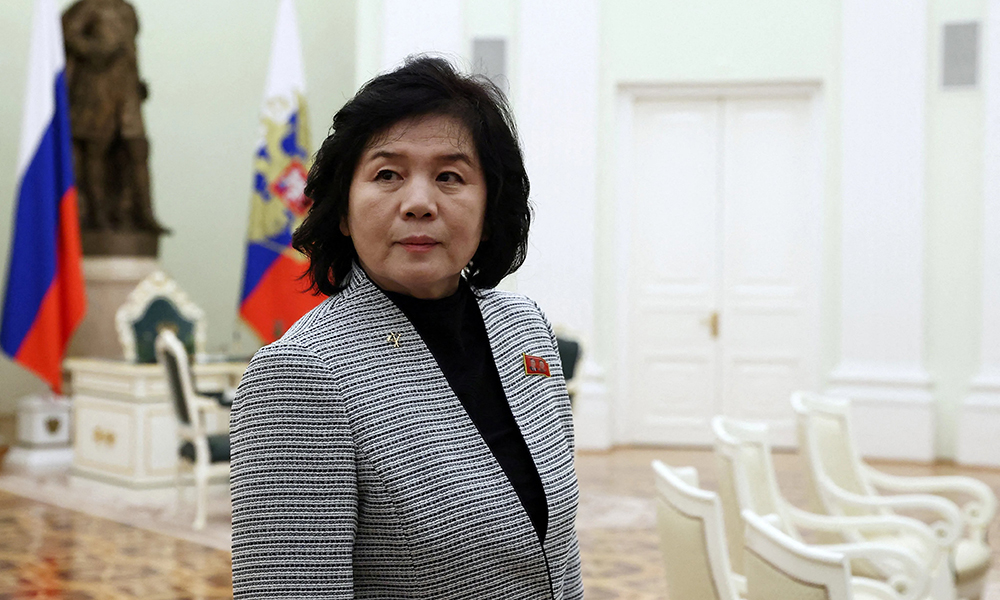
North Korea's foreign minister, Choe Son Hui, is on her way to Moscow, state media KCNA and Russian officials said on Tuesday, for her second trip to Russia in six weeks amid rising concerns about Pyongyang's involvement in Moscow's war in Ukraine, Reuters reported.
KCNA said a delegation led by Choe left on Monday for an official visit to Russia, without elaborating.
Russia's ambassador to Pyongyang, Alexander Matsegora, saw off Choe at the airport, the Russian embassy said in a statement posted on the embassy's Vkontakte social media page.
"The visit of the head of the DPRK Foreign Ministry to the Russian Federation is taking place within the framework of a strategic dialogue - following an agreement to enhance ties reached by the leaders of our countries during the June 2024 summit," the statement said.
DPRK stands for North Korea's official name, the Democratic People's Republic of Korea.
During a televised cabinet meeting, South Korean President Yoon Suk Yeol said "illegal" military cooperation between Russia and North Korea posed a serious threat to the international community, read the report.
"I want everyone to be on alert about risk management," Yoon told the meeting.
Choe's visit comes as NATO joined Seoul, Washington and Kyiv in confirming Pyongyang's dispatch of troops to Russia, saying that North Korean military units had been deployed to Russia's Kursk region on the border with Ukraine.
The Pentagon said on Monday that Washington would not impose new limits on Kyiv's use of American weapons if North Korea entered Moscow's war against Kyiv. It also said that North Korea had sent 10,000 troops to eastern Russia for training, up from its estimate of 3,000 on Wednesday.
U.S. President Joe Biden called the situation "very dangerous".
NATO Secretary-General Mark Rutte, after a meeting on Monday with a South Korean delegation, said the deepening military ties between Moscow and Pyongyang posed a threat to both Indo-Pacific and Euro-Atlantic security, Reuters reported.
South Korea's president, in a phone call with European Commission President Ursula von der Leyen, said the deployment of North Korean troops to the front lines of the war in Ukraine may come sooner than expected.
Since the meeting of North Korean leader Kim Jong Un and President Vladimir Putin in Russia's Far East last year, North Korea and Russia have upgraded their military ties. They met again in June this year to sign a comprehensive strategic partnership that includes a mutual defence pact.
-

 Latest News4 days ago
Latest News4 days agoHamid Karzai praises BRICS stance on Afghanistan
-
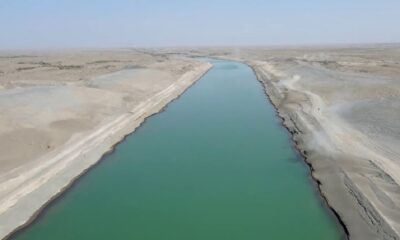
 Latest News5 days ago
Latest News5 days agoAfghanistan has right to take water from Amu river: Uzbekistan’s envoy
-
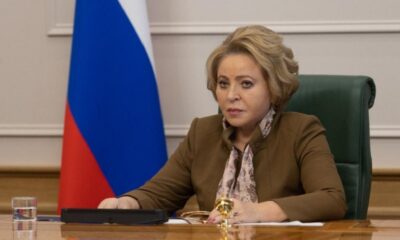
 Latest News4 days ago
Latest News4 days agoRussia’s senate speaker underscores commitment to fostering peace in Afghanistan
-
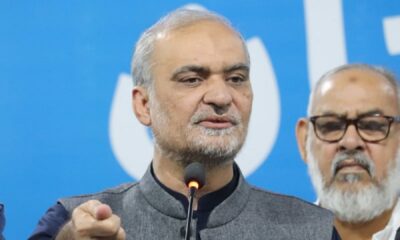
 Latest News5 days ago
Latest News5 days agoPakistani politician calls for dialogue between Islamabad and Kabul
-
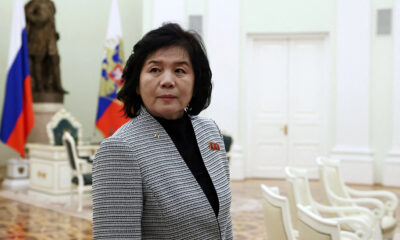
 World5 days ago
World5 days agoNorth Korea’s foreign minister leaves for Russia amid troop dispatch
-
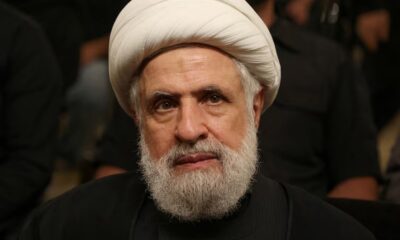
 Regional4 days ago
Regional4 days agoHezbollah elects Naim Qassem to succeed slain head Nasrallah
-

 Business5 days ago
Business5 days agoIEA signs contract for construction of cement factory in Jawzjan Province
-

 Latest News3 days ago
Latest News3 days agoACB name youth squad ahead of tri-nation series and U19 Asia Cup


